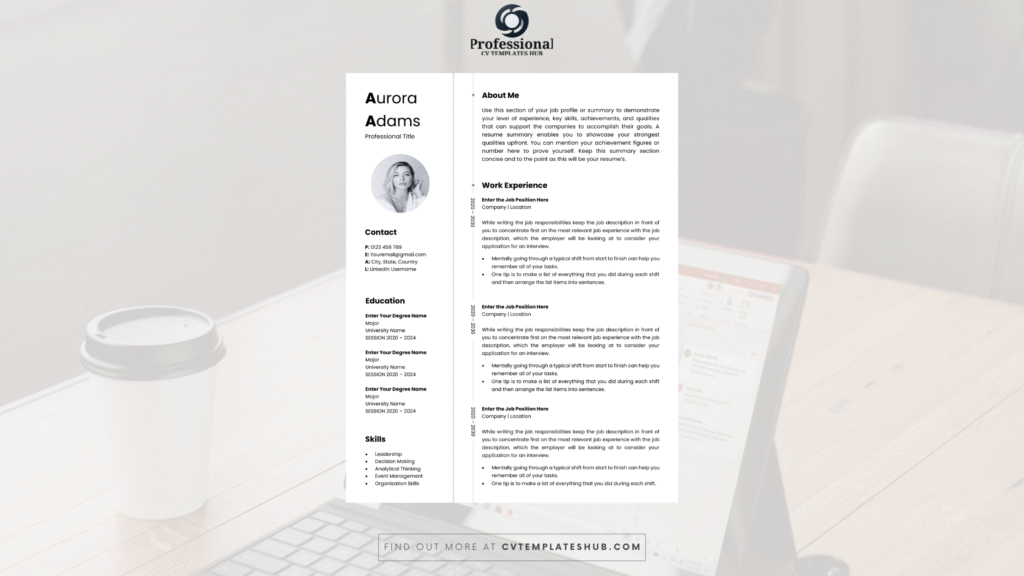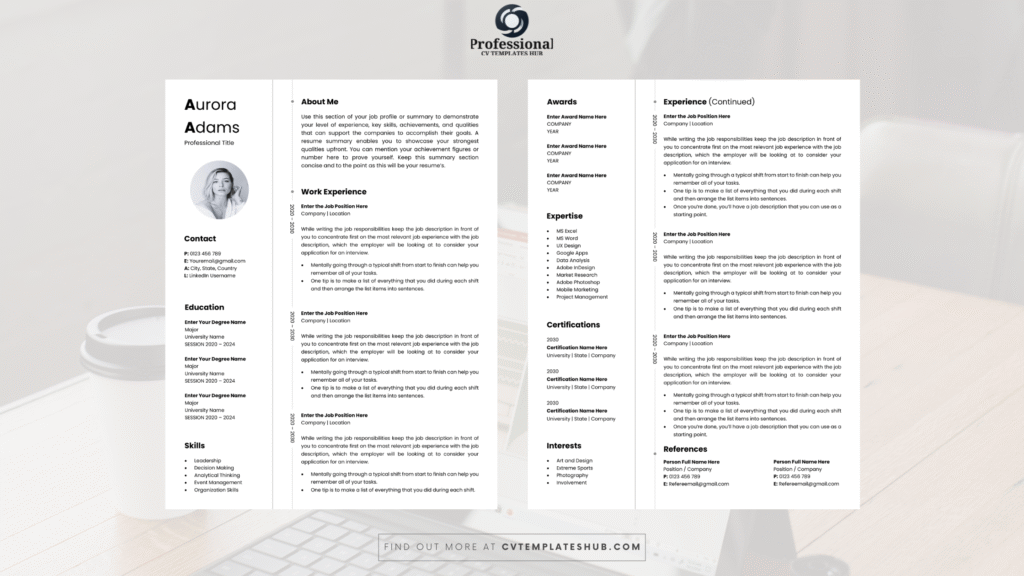CV on 1 Page or 2 Pages: Which Is Right for You?
Recruiters spend just 6–8 seconds scanning a CV. That makes every inch of space count.
Whether to use a 1-page CV or a 2-page CV is one of the most debated topics in job hunting. While some experts advocate for brevity, others emphasize the need for depth and detail.
In this guide, we’ll explore the pros, cons, and use cases of both formats to help you make the best decision for your career goals.
Is It Better to Have a CV on 1 Page or 2 Pages?
The short answer? It depends.
A 1-page CV works great for entry-level candidates, students, and professionals with fewer than 5 years of experience. It forces clarity and brevity.
A 2-page CV is often more suitable for experienced professionals, academics, or those in technical fields where accomplishments can’t be compressed without losing context.
Let’s break it down further.
1-Page CV: Pros and When to Use It
When a 1-Page CV Works Best
- You’re a recent graduate or have under 5 years of experience.
- You’re applying for entry-level roles, internships, or freelance gigs.
- Your experience is limited to 1–2 roles and doesn’t require extensive elaboration.
- You’re changing industries and want to highlight only relevant skills.
Benefits of a Single-Page CV
- Concise and focused: Shows only the most relevant accomplishments.
- ATS-friendly: Easier for Applicant Tracking Systems to scan.
- Recruiter-preferred: Saves time for hiring managers with hundreds of resumes to screen.
- Modern and sleek: Especially favored in design, marketing, and tech startups.

2-Page CV: Pros and When It’s More Effective
When You Should Go for Two Pages
- You have 10+ years of experience.
- You’re in a technical or academic field.
- You have numerous certifications, publications, or projects worth listing.
- You’ve held multiple leadership roles or have a complex work history.
Advantages of a 2-Page CV
- Provides context for job achievements.
- Showcases a broader skill set and extended career timeline.
- Useful for demonstrating career progression.
- Can include extra sections like awards, conferences, or portfolios.

How to Decide: 1 Page vs 2 Page CV
Based on Career Stage
- Students & recent grads: Stick to 1 page.
- Mid-career professionals: Consider 1 or 2 pages, depending on relevance.
- Executives & specialists: 2 pages usually necessary.
Based on Industry Expectations
- Tech & design startups: Often favor crisp 1-pagers.
- Academia, law, healthcare: 2 pages (or more) expected.
- Corporate roles: A 2-page CV with clear sectioning often works best.
Based on Job Application Method
- Online application portals: ATS systems scan all pages, so 2 pages are okay.
- Recruiter outreach or job fairs: A concise 1-page CV stands out better.
Formatting Tips for Both 1-Page and 2-Page CVs
- Use clear headings (H2, H3) and plenty of white space.
- Choose a professional font like Calibri, Arial, or Georgia.
- Stick to a maximum of two colors for readability.
- For 2-page CVs, ensure your name and page number appear on the second page.
- Avoid repeating information across pages.
Examples: Side-by-Side Comparison of a 1-Page and 2-Page CV
| Feature | 1-Page CV | 2-Page CV |
|---|---|---|
| Best For | Entry-level, fresh grads | Mid-to-senior professionals |
| Industry Fit | Startups, creative, marketing | Corporate, academic, technical |
| Key Benefit | Easy to scan, concise | Allows for depth and context |
| Recommended Length | Up to 500 words | 700–1000 words |
| Common Pitfall | Omits important details | Risk of including irrelevant content |
FAQs?
1. Should a CV be 1 page or 2 pages long?
It depends on your experience level. Less than 5 years? One page. More than that? Two pages are acceptable—if the content is relevant.
2. Is a 2-page CV too long?
Not if it’s well-organized and tailored to the job. Ensure every line adds value.
3. Do employers prefer one-page resumes?
Many recruiters appreciate the clarity of a one-pager, but won’t mind two pages if the information is strong and well-structured.
4. Can I have a 1.5-page CV?
Technically yes, but avoid leaving half a page blank. If you cross a page, aim to fill it fully.
5. How do I reduce my CV to one page?
Remove outdated roles, shorten job descriptions, use bullet points, and focus on achievements over duties.
Conclusion: What’s Right for You?
When it comes to CV on 1 page or 2 pages, the key is not the length—but the quality and relevance of your content.
If you’re early in your career or applying for fast-paced roles, a sharp 1-page CV may be your best bet.
If you’re an experienced professional, a 2-page CV gives you room to shine—as long as every section earns its place.
Need help creating the perfect CV?
Explore our editable CV templates designed for both 1-page and 2-page formats.
